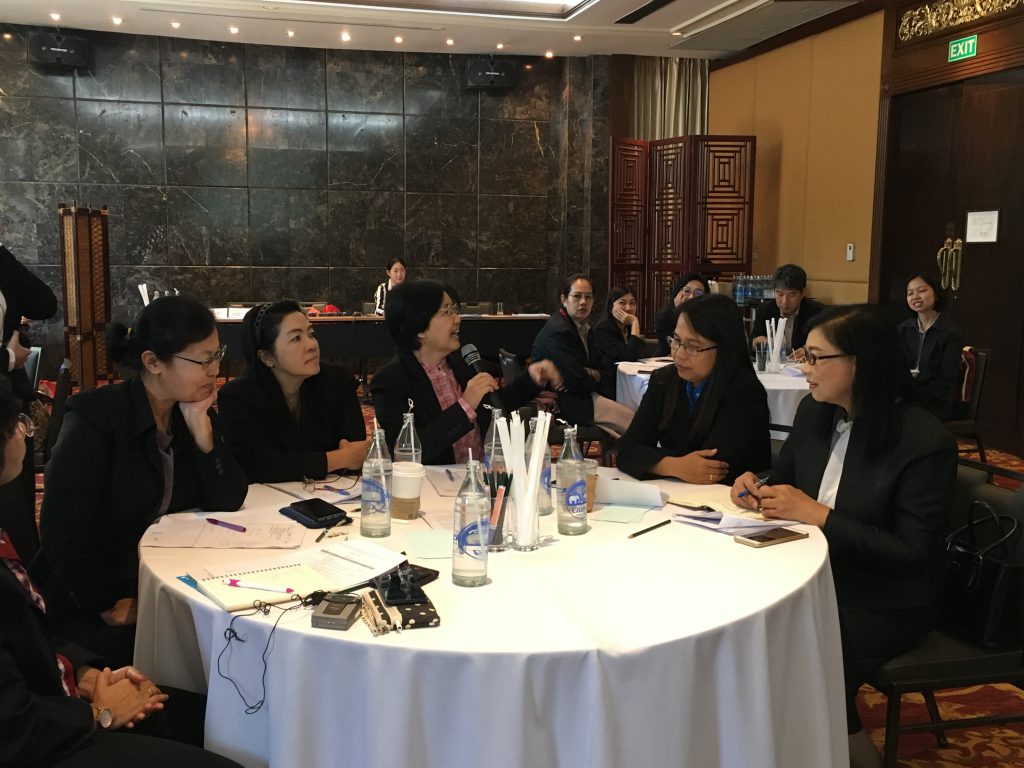
Writer: Metta Kongphan-apirak, Project Coordinator, Remote Sensing-based Information and Insurance for Crops in Emerging Economies (RIICE)
In order to address challenges in driving sustainability in agriculture, better understanding and knowledge on crop insurance scheme are essential to shape future direction in development and promotion of agricultural insurance in the country and possibly collaboration at the regional level.
About 30 participants from the Department of Agriculture, the Office of Agricultural Economics, the Office of Insurance Commission, experts from Germany and Philippines and the Deutsche Gesellschaft fur Internationale Zusammenarbeit (GIZ) Thailand attended the Knowledge Workshop on Agriculture Insurance Promotion in Thailand.
The workshop was organized on 2 December 2019 with the aim to build confidence among the government officials to work on related issues.
According to ILSI Southeast Asia Region (ILSI SEA Region), agriculture is a core sector in ASEAN where 40 percent of the working population of the member states based their livelihood and income on.

Risk management is key to sustainable agriculture and agriculture insurance is an important risk management tool that reduces vulnerability of small-scale farmers and enables the sector to become resilient to production risks – extreme climate events, mass disease and pest outbreaks which faced by the farmers.
In Thailand, the National Crop Insurance Programme, also called Top-Up Disaster Relief is an insurance structure which is placed on top of a governmental disaster relief programme.
The scheme is currently operated by the Bank for Agriculture and Agricultural Cooperatives (BAAC) and covers six types of natural disaster, which are floods, drought, storms, cold, hail and fires.
In addition to rice and corn, BAAC plans to expand the scheme to cover fruit and livestock. “There is high potential to further expand and develop appropriate insurance scheme for other crops of important economic value,” said Ms. Ing-orn Panyakit, deputy director-general of the Department of Agriculture who believed the workshop would allow her and her colleagues to promote crop insurance in Thailand in the near future.

Agricultural insurance protects farmers’ investments and ensures that even when harvests fail, farmers have sufficient financial resources to re-invest and cover basic household needs like food and health care. It also improves an access to finance and farmers’ capacity to grow their farm business.
The seminar was organized by the Remote sensing-based Information and Insurance for Crops in Emerging economies (RIICE) Project.